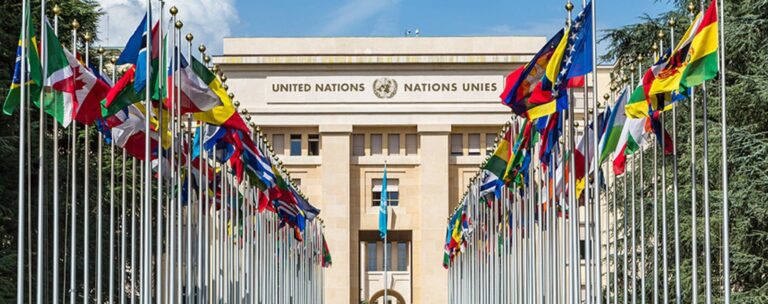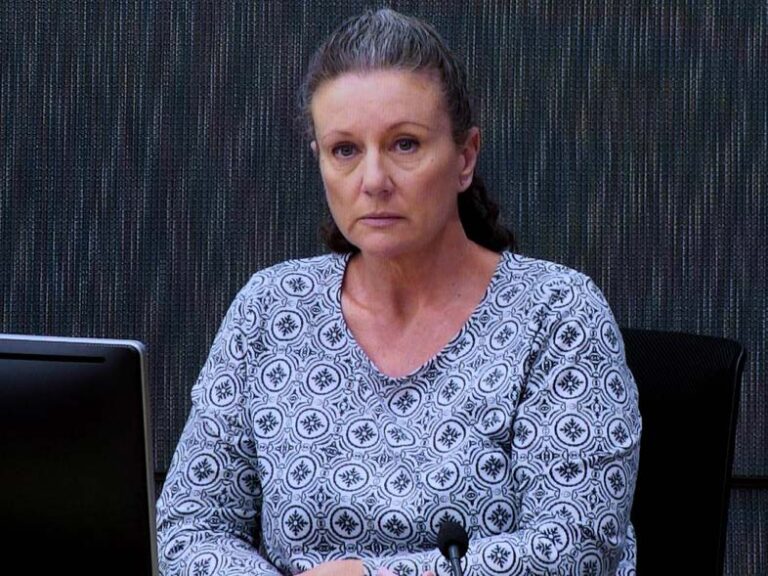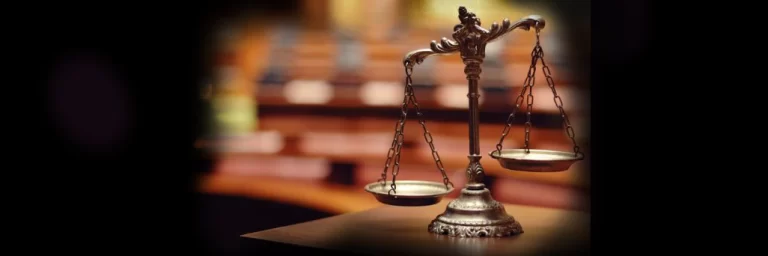Kathleen Folbigg and the Prerogative of Mercy
Table of Contents
Pardon and Parole Powers and Procedures in New South Wales
This short paper has been prepared because some parliamentarians in New South Wales have indicated they do not understand the law as it relates to the exercise of the prerogative of mercy.
Prerogative of Mercy Meaning
One of a number of examples of when the prerogative of mercy can be used is when it is apparent that the courts have failed to recognise a miscarriage of justice, and someone is suffering as a result. ‘Prerogative’ means a special right or privilege exercised by a person, and ‘mercy’ means ‘forbearance (abstinence from enforcing) and compassion shown to a powerless person’.
In New South Wales the prerogative of mercy power is exercised by the Governor who acts on the advice of the Attorney General and the Executive Council.
A useful description of the nature of the ‘prerogative of mercy’ is found in The Queen v Secretary of State for the Home Department where it was found to be a flexible power that can be adapted to meet a particular case and it is a constitutional safeguard against mistakes.[1]
The prerogative is a flexible power and its exercise can and should be adapted to meet the circumstances of the particular case. We would adopt the language used by the Court of Appeal in New Zealand in Burt v. Governor General (supra):
“The prerogative of mercy can no longer be regarded as no more than an arbitrary monarchical right of grace and favour”.
It is now a constitutional safeguard against mistakes.
Pardon Petition
On 2 March 2021 a Pardon Petition was submitted seeking an unconditional pardon for Kathleen Folbigg. It was substantially based on new genetic evidence showing additional causes of death for Sarah and Laura Folbigg. This ground for seeking a pardon is recognised by the New South Wales government in its published literature.
Some examples of extraordinary circumstances in which pardons have been granted include wrongful convictions, where new methods of forensic evidence raise significant questions as to the petitioner’s guilt, or where a third party confessed to the crime of which a petitioner was convicted.[2] (emphasis added)
The decision to grant or deny a pardon is taken by elected parliamentarians who advise the Governor they have appointed.
Pardons are not granted or denied by courts.
Since the Pardon Petition was submitted on 2 March 2021 there was a very large amount of expert evidence and submissions presented to the Attorney General in support of the petition.
On 18 May 2022, the Governor on the advice of the Attorney General ordered a second inquiry into Kathleen Folbigg’s convictions. The Inquiry has been underway for nearly 12 months. It has received expert reports and heard approximately two weeks of evidence from experts in cardiology, genetics, neurology, psychiatry, and psychology. The expert opinions dealt with the cause of death of the Folbigg children and Kathleen Folbigg’s diaries and journals. The evidence was overwhelmingly in favour of natural causes of death of her children.
Counsel Assisting the Inquiry indicated that it was open for the Inquirer to find a reasonable doubt. The Director of Public Prosecutions has made similar submissions. The Inquirer’s role is to determine if he has a reasonable doubt.
The Attorney General has provided no reason why a pardon has not been granted and Kathleen Folbigg required to remain in gaol. She has already served nearly 20 years in gaol.
Statutory Basis for Exercise of Power
There is very little information provided that establish protocols to be followed, or guidelines that require the Attorney General or Governor to respond to a petition.
The statutory basis for the exercise of the prerogative of mercy is outlined below.
The Commonwealth Australia Act 1986 gives to the Governor of a State all the powers and functions of the King. The Act commences with the following words:
An Act to bring constitutional arrangements affecting the Commonwealth and the States into conformity with the status of the Commonwealth of Australia as a sovereign, independent and federal nation
Section 7(2) preserves the royal prerogative of mercy it states:
7 Powers and functions of Her Majesty and Governors in respect of States
(1) Her Majesty’s representative in each State shall be the Governor.
(2) Subject to subsections (3) and (4) below, all powers and functions of Her Majesty in respect of a State are exercisable only by the Governor of the State.
(3) Subsection (2) above does not apply in relation to the power to appoint, and the power to terminate the appointment of, the Governor of a State.
(4) While Her Majesty is personally present in a State, Her Majesty is not precluded from exercising any of Her powers and functions in respect of the State that are the subject of subsection (2) above.
(5) The advice to Her Majesty in relation to the exercise of the powers and functions of Her Majesty in respect of a State shall be tendered by the Premier of the State. (emphasis added)
The prerogative of mercy has not been removed by statute in New South Wales, it has been specifically preserved. The prerogative of mercy is not exercised by the courts. It is exercised by the Governor of New South Wales acting on the advice of the Attorney General and the Executive Council.[3] Similarly, the King does not exercise the power personally. Lord Denning MR said:
These courts have had occasion in the past to cut down some of the prerogatives of the Crown: but they have never sought to encroach on the prerogative of mercy. It is not exercised by the Queen herself personally. It is exercised by her on the advice of one of the principal Secretaries of State. He advises her with the greatest conscience and good care. He takes full responsibility for the manner of its exercise. That being so, the law will not inquire into the manner in which the prerogative is exercised. It is outside the competence of the courts to call it into question: nor would they wish to do so.[4]
Section 9A of the Constitution Act 1902 (NSW) allows for the appointment of a Governor. It states:
9A Appointment of Governor
(1) There shall continue to be a Governor of the State.
(2) The appointment of a person to the office of Governor shall be during Her Majesty’s pleasure by Commission under Her Majesty’s Sign Manual and the Public Seal of the State.
(3) Before assuming office, a person appointed to be Governor shall take the Oath or Affirmation of Allegiance and the Oath or Affirmation of Office in the presence of the Chief Justice or another Judge of the Supreme Court.
Sections 76 of the Crimes (Appeal and Review) Act 2001 allows for the pardoning power to be exercised by the Governor. It gives the Governor power to grant a pardon. It states:
76 Petitions to Governor
A petition for a review of a conviction or sentence or the exercise of the Governor’s pardoning power may be made to the Governor by the convicted person or by another person on behalf of the convicted person. (emphasis added)
Sections 77 of the Crimes (Appeal and Review) Act 2001 allows, amongst other things, the following:
- The Governor to direct that any inquiry be conducted by a judicial officer into the conviction or sentence: s77(1)(a).
- The Attorney General to refer the case to the Court of Criminal Appeal: s77(1)(b).
- The Attorney General to seek an opinion from the Court of Criminal Appeal about any point arising in the case: s77(1)(c).
- The Governor to refuse to consider the Petition: s77(3). This power is not unfettered.
- The Attorney General to refuse to consider the Petition: s77(3). This power is not unfettered.
- If the petition does not ask for a review or a pardon the Attorney General can decide to deal with it appropriately: s77(5) For example, he can refer it to the Court of Criminal Appeal or grant a Pardon.
Section 77 states:
77 Consideration of petitions
(1) After the consideration of a petition—
(a) the Governor may direct that an inquiry be conducted by a judicial officer into the conviction or sentence, or
(b) the Attorney General may refer the whole case to the Court of Criminal Appeal, to be dealt with as an appeal under the Criminal Appeal Act 1912, or
(c) the Attorney General may request the Court of Criminal Appeal to give an opinion on any point arising in the case.
(2) Action under subsection (1) may only be taken if it appears that there is a doubt or question as to the convicted person’s guilt, as to any mitigating circumstances in the case or as to any part of the evidence in the case.
(3) The Governor or the Attorney General may refuse to consider or otherwise deal with a petition. Without limiting the foregoing, the Governor or the Attorney General may refuse to consider or otherwise deal with a petition if—
(a) it appears that the matter—
(i) has been fully dealt with in the proceedings giving rise to the conviction or sentence (or in any proceedings on appeal from the conviction or sentence), or
(ii) has previously been dealt with under this Part or under the previous review provisions, or
(iii) has been the subject of a right of appeal (or a right to apply for leave to appeal) by the convicted person but no such appeal or application has been made, or
(iv) has been the subject of appeal proceedings commenced by or on behalf of the convicted person (including proceedings on an application for leave to appeal) where the appeal or application has been withdrawn or the proceedings have been allowed to lapse, and
(b) the Governor or the Attorney General is not satisfied that there are special facts or special circumstances that justify the taking of further action.
(3A) The Governor or the Attorney General may defer consideration of a petition if—
(a) the time within which an appeal may be made against the conviction or sentence (including an application for leave to appeal) is yet to expire, or
(b) the conviction or sentence is the subject of appeal proceedings (including proceedings on an application for leave to appeal) that are yet to be finally determined, or
(c) the petition fails to disclose sufficient information to enable the conviction or sentence to be properly considered.
(4) The Attorney General must cause a report to be given to the registrar of the Criminal Division of the Supreme Court as to any action taken by the Governor or the Attorney General under this section (including a refusal to consider or otherwise deal with a petition).
(5) A petition (however described) that does not expressly seek a review of a conviction or sentence or the exercise of the Governor’s pardoning power may be dealt with as if it did if the Attorney General is of the opinion that it should be so dealt with. (emphasis added)
Section 84 of the Crimes (Appeal and Review) Act 2001 allows for the quashing of convictions following a pardon. It states:
84 Quashing of conviction following pardon
(1) The Court may quash a conviction in respect of which a free pardon has been granted.
(2) However, the mere fact that a free pardon has been granted does not entitle the person to whom the pardon has been granted to a quashing of the conviction.
(3) An application for the quashing of the conviction may be made to the Court by the person to whom the pardon has been granted or by another person on behalf of that person.
(4) However, such an application may not be made in respect of a free pardon arising from an inquiry under Division 4 if the matter has previously been dealt with under this Division as a consequence of a reference to the Court, under section 82 (2) (or so dealt with under the corresponding previous review provisions), by the judicial officer conducting the inquiry.
(5) The registrar of the Court must cause a copy of any application made under this section to be given to the Minister.
Nothing in the Act stops a quashing of convictions at the same time a pardon is granted.
Parole Petition
The Crimes (Administration of Sentences) Act 1999 (NSW). Division 4B section 160AD states:
160AD Governor may make parole order
(1) The Governor may, in exercising the prerogative of mercy, make a parole order in respect of an offender.
(2) The parole order may be made whether or not the offender is eligible for release on parole.
(3) An offender may be released on parole in accordance with a parole order made by the Governor.
(4) Division 1 of this Part (other than section 126) and Divisions 3–6 of Part 7 (the applied provisions) apply to a parole order made by the Governor in the same way as they apply to a parole order made by the Parole Authority.
(5) Except to the extent that the Governor otherwise directs, the Parole Authority is to exercise functions under the applied provisions as if the parole order were a parole order made by the Parole Authority.
(6) The Governor may revoke or vary a direction given to the Parole Authority under this section. (emphasis added)
Kathleen Folbigg – The Parole Petition.
On 6 July 2022 a Parole Petition was submitted on behalf of Kathleen Folbigg. The same basic procedure for the granting of a pardon applies to the granting of early parole.
The petition for parole submitted, amongst other things, that there is substantial exculpatory evidence has been raised which causes serious doubt about Ms Folbigg’s convictions. Such evidence demonstrates that the prosecution and convictions of Ms Folbigg can no longer be regarded as having passed the beyond reasonable doubt standard of proof. The exculpatory evidence which significantly undermines the prosecution case has been provided by a number of sources, but most significantly by Australia’s leading forensic pathologist, Professor Stephen Cordner. He concluded ‘[u]ltimately, and simply, there is no forensic pathology support for the contention that any or all of these children have been killed, let alone smothered.’ The prosecution claimed that Ms Folbigg smothered all four of her children. This hypothesis runs counter to the forensic pathology evidence and now, the new genetic evidence.
Further, as of 17 November 2020, another strong reasonable possibility consistent with innocence has been raised and not negated. This new evidence is that a genetic mutation known as CALM2 G114R is ‘pathogenic’ and can be regarded as the cause of death of Ms Folbigg’s two daughters, Sarah and Laura. The scientific certainty that CALM2 G114R can cause death is at 99%. Forensic pathologists have now changed their diagnoses for Sarah and Laura Folbigg to reflect the new genetic understanding of their deaths.
Release on parole would be an interim measure until a full pardon and the quashing of convictions could occur.
The Attorney General and other New South Wales politicians have provided no cogent reasons why Kathleen Folbigg should not be immediately released from gaol.
The quality of mercy is not strained;
It droppeth as the gentle rain from heaven
Upon the place beneath. It is twice blest;
It blesseth him that gives and him that takes:
‘T is mightiest in the mightiest; it becomes
The throned monarch better than his crown:
His sceptre shows the force of temporal power,
The attribute to awe and majesty,
Wherein doth sit the dread and fear of kings;
But mercy is above this sceptred sway;
It is enthronèd in the hearts of kings,
It is an attribute to God himself;
And earthly power doth then show likest God’s
When mercy seasons justice. …
Though justice be thy plea, consider this,
That, in the course of justice, none of us
Should see salvation: we do pray for mercy;
And that same prayer doth teach us all to render
The deeds of mercy.
Portia (the lawyer) The Merchant of Venice, Act IV, Scene I[5]
References
[1] [1993] EWHC Admin 2.
[2] NSW Government, Royal prerogative of mercy: Fact sheet (nsw.gov.au)
[3] Constitution Act 1902 s35B ‘Continuation of Executive Council
There shall continue to be an Executive Council to advise the Governor in the government of the State.’
[4] Hanratty v Lord Butler (Unreported, Court of Appeal (Civil Division), 12 May 1971).
[5] A judicial exploration of portia in The Merchant of Venice a critical study.pdf






